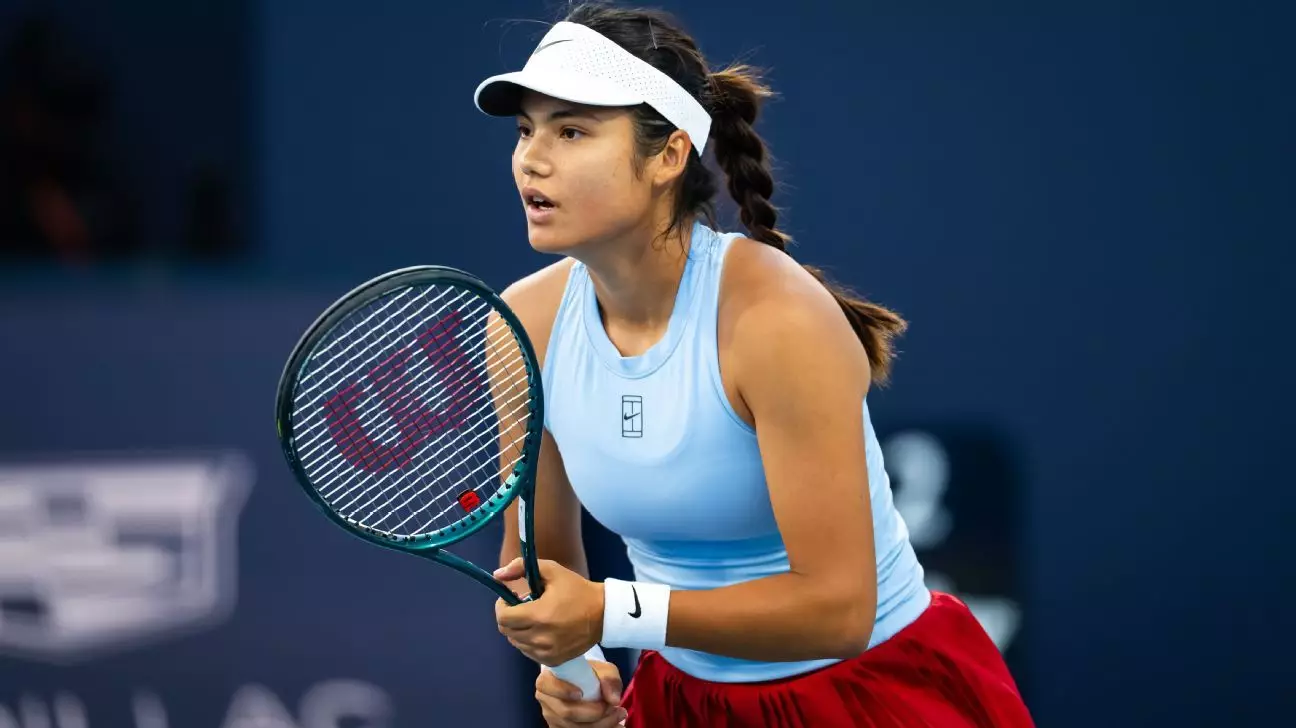Emma Raducanu, the young British tennis sensation known for her stunning victory at the 2021 U.S. Open, is navigating a pivotal stage in her career. After grappling with a series of coaching changes and limited success attributed to both form and fitness, Raducanu has found solace in a more informal coaching arrangement with former player Mark Petchey. This shift seems not only to reflect her current mental and physical state but also to signify a deeper understanding of what it takes to excel in a sport that often demands more than just technical prowess.
Raducanu’s candid acknowledgment of her informal collaboration with Petchey reveals her intent to discover what truly resonates with her as an athlete. Instead of adhering rigidly to traditional coaching structures that may have stifled her creativity, she appears to be embracing a flexible framework where the focus is on self-discovery. “It’s pretty informal for now but is something that’s going really well,” she remarked, indicating that the nuances of her game are evolving. This progressive mindset could be the key to rejuvenating her career and finding a path that leads back to peak performance.
Redefining Success Through Balance
Following a mid-season break, Raducanu’s return to the Madrid Open is met with a fresh perspective on her rigorous training regimen. The decision to prioritize rest over participating in the Billie Jean King Cup qualifiers speaks volumes about her evolving understanding of balance within her career. By taking a step back after her quarterfinal trek in Miami, where medical assistance was necessary during her match against Jessica Pegula, she demonstrated an acute awareness of her limitations and the importance of mental and physical recovery.
Training blocks, rather than relentless match play, appear to be part of her new strategy. Raducanu’s revelation that “less is more” echoes a philosophy that redefines the sports culture surrounding elite athletes, who often feel pressured to constantly compete. This shift could encourage a broader conversation about mental health and sustainability in high-stakes sports, where burnout is increasingly common among young talents.
Intensity with Intention
Raducanu has emphasized the value of focused, high-intensity practice sessions combined with intentional downtime. “It’s just making sure when I’m on the court I’m maxing out for X amount of time,” she described, highlighting her desire to maximize productivity during training while permitting herself the mental space to recharge afterward. This revelation transforms the narrative around her training; it’s no longer about clocking hours on the court but about engaging deeply and effectively for shorter, more impactful periods.
In a sport where physical prowess is often glorified, Raducanu’s strategic shift offers a refreshing outlook. It suggests that emotional and psychological well-being are equally vital to achieving greatness. Her focus on concerted efforts paired with mindful rest may serve as a blueprint for other athletes grappling with similar pressures, ultimately leading to longer and more fulfilling careers.
As Raducanu prepares for her matchup against Dutch player Suzan Lamens, her journey underscores a growing trend in professional sports: the importance of adapting one’s approach to cultivate sustained success and fulfillment. The road ahead may not be devoid of challenges, but with her newfound perspective, Raducanu seems poised to navigate it with resilience and clarity.

